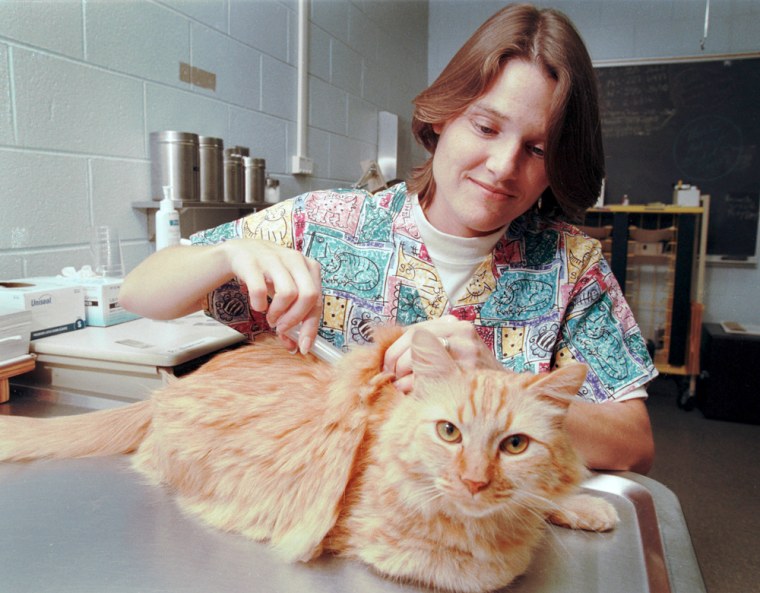The University of Georgia’s veterinary hospital treats thousands of horses, cats, dogs, birds, reptiles and other pets each year. But don’t ask about them — that’s information for their owners only.
Hospital officials apply the same confidentiality rules for humans to their animal patients. That means no disclosure of medical conditions, no photos taken without an owner’s consent.
It even extends to the large animal unit, where milling about is not allowed. An owner can stand only near the stall of his pet.
“It’s like a human hospital,” said LaDon Wallis, a new graduate of UGA’s veterinarian school who has worked at its animal hospital for six years. “It’s not just this place where animals are having a field day like a park. People should respect that.”
Pets seen as property
More veterinarians, animal hospitals and zoos nationwide are holding back patient information since last year when the federal privacy Health Insurance Portability and Accountability Act went into effect at human hospitals.
Also last year, the American Animal Hospital Association introduced new accreditation standards requiring policies that protect the privacy of animals treated by its 3,000 members in the United States and Canada.
“There has been an increase in awareness on the part of our profession that we should respect the legal limitations of medical records,” said Link Welborn, a Tampa, Fla., veterinarian and past president of the Denver-based association.
HIPAA has “probably raised our profession’s awareness about potential liability,” he said.
At the UGA hospital, staff members were forced to hang signs on patients’ charts saying they were confidential to keep away wandering eyes. “People would just be flipping through the records,” Wallis said.
The University of Tennessee’s Veterinary Teaching Hospital operates on the premise that every individual has a right to privacy, and pets are property, records administrator Sue Gray. It is standard procedure to first get an owner’s permission to release an animal’s medical records or allow photos or video of an animal.
“It protects individual property rights,” Gray said.
California attorney Sandra Toye, who has worked on companion animal law issues for five years, said she has seen veterinary offices refuse to release even the most general information about trends or illnesses they are seeing.
“It seems like the trend is that they’re very protective,” she said.
Two years ago, Lucy Spelman, director of the National Zoo in Washington, D.C., drew ridicule from animal rights activists, media lawyers and others when she withheld records on the death of a 17-year-old giraffe. Spelman cited the animal’s privacy and respect for the veterinarian-animal relationship.
Often, a state’s open records law dictates how much access the public is given to patients in animal hospitals. For example, Washington State University’s Veterinary Teaching Hospital must release information and allow photos because of that state’s liberal public disclosure laws.
“Animals do not have a right to privacy like people do,” said spokesman Charles Powell.
In working with the media and handling requests from the public, Powell said he tries to get approval from the animal’s owner but isn’t required to do so.
“I just don’t have any other choice,” he said.
Wallis said it surprises her that someone would even think of taking a picture of an animal patient or sneaking a peek at records without the owner’s permission.
“They’re pets. So many people think of them like children,” she said. “People think of animals, ’Oh they’re cute,’ but it’s a hospital.”
